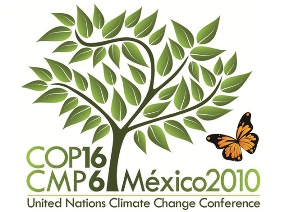 Mexico’s deft hosting of U.N. climate talks is raising the stakes for nations with hard-line positions — such as Japan and Bolivia — since they risk getting more blame if the meeting fails, analysts say.
Mexico’s deft hosting of U.N. climate talks is raising the stakes for nations with hard-line positions — such as Japan and Bolivia — since they risk getting more blame if the meeting fails, analysts say.
At the 2009 Copenhagen climate summit, Denmark’s use of “secret” negotiating texts among only a few nations angered many poor countries who felt left out. Denmark then got some of the blame for the failure to agree to a binding U.N. climate treaty.
This year, Mexico has won high marks so far for steering talks among almost 200 nations in the Caribbean resort of Cancun. “There are no secret texts,” Foreign Minister Patricia Espinosa has often insisted, drawing a contrast with Copenhagen.
That means the spotlight is less likely to be on Mexico if Cancun fails to overcome a deadlock over a modest package of measures including a new climate fund to help the poor, ways to share green technologies and to protect tropical forests.
“The Mexicans are doing a great job here and it will put people on the hook to deliver at the end of the week,” said Alden Meyer, of the Union of Concerned Scientists, of the November 29 to December 10 meeting.
So far, Japan and Bolivia have been most hard-line in public, risking a share of blame if they do not back down. Japan has refused to extend the U.N.’s existing Kyoto Protocol for curbing climate change beyond 2012 and Bolivia on Monday likened climate policies of the rich to “genocide.”
China and the United States, the two emitters of greenhouse gases often at odds with each other in 2010, have by contrast sounded conciliatory. The talks are seeking small steps to avert droughts, more powerful storms, heatwaves and rising sea levels that is the result of global warming.
COPENHAGEN MYTHS
European Climate Commissioner Connie Hedegaard, who was Danish Climate and Energy Minister hosting Copenhagen, said organizers of U.N. conferences face a tightrope.
“This is always very, very difficult. There was transparency last year despite the myths that are being created. And the Mexican presidency has done a lot of work to ensure transparency here,” she told Reuters.
Angela Anderson of U.S. Climate Action Network said: “While process is important it should not be the fall guy for a bad outcome. If progress is blocked here it will be obvious who is doing it.”
Tokyo has angered developing nations by saying it will not agree to extend the U.N.’s Kyoto Protocol, which obliges almost 40 industrialized nations to cut emissions by 2012.
Japan wants a new, broader treaty including all emitters. But developing nations say Kyoto backers must lead the way, extending their cuts before emerging economies join in.
“Blocking what? That no more people should die?” Ambassador Pablo Solon said at a news conference when asked if Bolivia risked getting the blame by sticking to its demands which are the most radical of any country.
He said that 300,000 people were dying a year from natural disasters and it might rise to a million by 2020. “Talking about 300,000 deaths, is that not talking about genocide?” he said.
Bolivia’s left-wing government says rich nations must halve their greenhouse gas emissions from 1990 levels by 2013-17, deeper than cuts of at least 45 percent by 2020 urged by an alliance of about 100 least developed nations and island states.
Developed nations, meanwhile, are promising far less — President Barack Obama’s goal, for instance, is equivalent to a 3-4 percent reduction below 1990 levels by 2020. Some environmentalists say Bolivia may be aiming too high.
“The question is ‘do you move forward with a revolution or do you move forward with small steps?’, said Wendel Trio of Greenpeace. “I am afraid that a revolution is not possible.”




